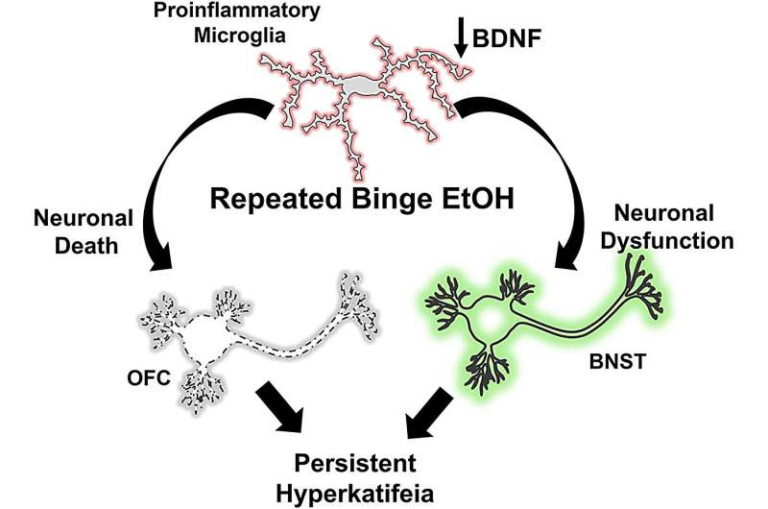How a “Memory-Killing” Alzheimer’s Protein Could Help Defeat Cancer

Scientists have discovered a surprising connection between Alzheimer’s disease and cancer, two conditions that seem to exist on opposite ends of the health spectrum. Alzheimer’s is known for damaging neurons and destroying memory, while cancer thrives on uncontrolled cell growth. Yet, new research from the Medical University of South Carolina’s Hollings Cancer Center (MUSC) reveals that a protein associated with Alzheimer’s may actually boost the immune system’s ability to fight tumors.
The study, published in Cancer Research in October 2025, dives into how the Alzheimer’s-linked amyloid beta (Aβ) peptide—infamous for forming toxic plaques in the brain—plays a very different role in the immune system. Rather than causing harm, amyloid beta seems to strengthen T-cells, the immune soldiers responsible for detecting and destroying cancer cells.
Alzheimer’s and Cancer: An Unexpected Inverse Relationship
For years, population studies have noticed a strange pattern: people diagnosed with Alzheimer’s disease are less likely to develop cancer. This inverse relationship puzzled scientists. After all, Alzheimer’s involves degenerative cell death, while cancer is marked by rampant cell survival and growth. The contradiction hinted that there might be a deeper biological connection.
At MUSC, a team led by Dr. Besim Ogretmen, associate director of Basic Science at Hollings Cancer Center, decided to find out why. Dr. Kalyani Sonawane, an epidemiologist on the team, analyzed five years of nationally representative health surveys. The results were striking—adults over 59 with Alzheimer’s were 21 times less likely to develop cancer compared to those without the disease.
That finding raised a crucial question: what is happening at the molecular level to create this effect?
The Dual Role of Amyloid Beta
The team zeroed in on amyloid beta, a peptide that accumulates in Alzheimer’s patients’ brains and damages neurons. Their experiments revealed that this same peptide has a dual nature—harmful in the brain, yet beneficial in the immune system.
The key lies in how amyloid beta affects mitochondria, the tiny powerhouses inside every cell that generate energy. In neurons, amyloid beta disrupts a process called mitophagy, which normally removes old or damaged mitochondria. When mitophagy fails, defective mitochondria pile up, releasing harmful molecules that trigger cell death and memory loss.
But in T-cells, the effect is the opposite. When amyloid beta blocks mitophagy in immune cells, their mitochondria remain intact and active for longer. This means T-cells have more energy and can attack cancer cells more effectively. Essentially, what kills brain cells may rejuvenate immune cells.
This discovery suggests that amyloid beta is not inherently bad—it’s context-dependent. In the brain, it leads to degeneration; in the immune system, it might be a protective force.
How the Research Was Done
To test their hypothesis, the researchers ran a series of detailed experiments using cell cultures, mouse models, and mitochondrial transfer techniques.
- Mitochondrial Transfer Experiments
The scientists transplanted mitochondria from Alzheimer’s model mice into older, non-Alzheimer’s T-cells. The results were dramatic. The aging T-cells started functioning like young, energetic cells, showing stronger immune activity and higher energy production. It was as if the “old” immune cells got a biological battery recharge. - Tumor Models
In animal studies, the researchers observed that mice engineered to model Alzheimer’s disease developed smaller tumors compared to normal mice. When the scientists depleted T-cells, the anti-tumor benefit disappeared—confirming that T-cells were driving the cancer resistance. - Adoptive T-cell Transfer
In another experiment, aging T-cells from Alzheimer’s model mice were transferred into healthy recipient mice. The recipients showed slower tumor growth, proving that Alzheimer’s-related T-cells themselves possess enhanced anti-tumor abilities.
These experiments confirmed that amyloid beta’s influence on mitochondria has profound immune implications.
The Role of Fumarate and Mitochondrial Balance
The team also discovered a second layer of complexity involving fumarate, a small molecule produced during mitochondrial energy generation.
Fumarate helps regulate mitophagy by acting as a brake—preventing cells from recycling too many mitochondria at once. In Alzheimer’s-related immune cells, fumarate levels drop, allowing mitochondria to accumulate and boosting T-cell performance. But when fumarate levels get too low, problems arise. Excessive mitophagy can drain a cell’s energy, weakening it over time.
To test this, the researchers administered fumarate to aging T-cells in both mouse and human tissues. The added fumarate reduced overactive mitophagy and preserved healthy mitochondria. This gave the cells more energy and improved their ability to attack cancer. The findings show that controlling fumarate levels could be a promising way to maintain immune health during aging.
Implications for Future Cancer Therapies
This discovery could change how scientists think about cancer treatment. Instead of focusing only on destroying tumors directly, researchers could enhance the immune system itself—making T-cells stronger, younger, and more persistent.
Here are some of the possible therapeutic strategies inspired by the study:
- Mitochondrial Transplantation:
Giving older T-cells new mitochondria could revitalize their energy output, helping them perform better against cancer. This could complement CAR-T cell therapy, where a patient’s T-cells are engineered to attack tumors. - Fumarate-based Treatments:
Drugs or supplements that help preserve or restore fumarate levels might sustain T-cell power over time. This could be particularly useful for elderly patients whose immune systems naturally weaken with age. - Mitochondrial Quality Control in Immunotherapy:
Protecting T-cell mitochondria could make existing immunotherapies more durable and effective. Over time, maintaining mitochondrial health might extend immune resilience even outside cancer contexts—helping older adults fight infections and inflammatory diseases.
The MUSC team has already filed a patent for this mitochondrial rejuvenation discovery, signaling strong potential for clinical translation.
Why Alzheimer’s and Cancer Behave Oppositely
The concept of an Alzheimer’s-cancer paradox has intrigued scientists for decades. While Alzheimer’s involves widespread cell death, cancer represents unchecked cell growth. These opposite outcomes may share overlapping biological pathways.
In Alzheimer’s disease:
- Amyloid beta buildup triggers stress in brain cells.
- Mitochondria malfunction, producing toxic byproducts.
- Mitophagy stalls, leading to neuron death.
In cancer:
- Cells often suppress mitophagy to preserve energy.
- Immune cells, especially T-cells, need energy to kill tumor cells.
- By blocking mitophagy in T-cells (as amyloid beta does), the immune system can fight cancer more efficiently.
In short, the same protein can be destructive in one system (neurons) and beneficial in another (immune cells). Understanding this duality opens up new perspectives on treating both diseases.
The Science Behind Mitophagy and Fumarate
For readers curious about the underlying biology, here’s a quick breakdown of the key processes involved:
What is Mitophagy?
Mitophagy is a type of cellular “recycling” where damaged mitochondria are broken down and replaced. It’s vital for maintaining cell health. However, when mitophagy becomes too active or too slow, it can cause problems:
- Too slow: Damaged mitochondria accumulate, causing oxidative stress.
- Too fast: Healthy mitochondria get destroyed, leaving the cell energy-deficient.
What is Fumarate?
Fumarate is an intermediate in the Krebs cycle, part of how cells generate energy. Besides its metabolic role, fumarate influences signaling pathways by attaching to certain proteins—a process known as succination. When fumarate levels drop too low, these regulatory processes get disrupted, altering how cells handle stress and damage.
In this study, fumarate’s balance was key. Low fumarate boosted T-cell function, but maintaining the right level prevented energy loss and immune fatigue.
Broader Implications for Aging and Health
The findings reach beyond cancer and Alzheimer’s. Aging itself is linked to mitochondrial decline and immune dysfunction. As people age, their T-cells lose vitality, making them more vulnerable to infections and less responsive to vaccines.
By protecting mitochondria—either through mitochondrial transplantation or metabolic supplements like fumarate—it might be possible to slow immune aging. Such approaches could enhance overall resilience in older adults, improving recovery from illness and possibly extending healthspan.
This idea connects neurodegeneration, cancer biology, and immunology into a shared framework of mitochondrial health. It’s a reminder that diseases we often consider unrelated can be deeply intertwined through cellular metabolism.
Future Research and Cautions
While these discoveries are exciting, they are still early-stage. Most data come from mouse models and cell experiments, not human trials. Translating mitochondrial or fumarate-based therapies to patients will require extensive testing for safety and efficacy.
There’s also a delicate balance to maintain. Encouraging amyloid beta activity might aid T-cells, but excess levels in the brain remain toxic. Scientists will need to find ways to separate the beneficial immune effects from the harmful neurological ones.
Still, the potential is enormous. This research suggests a new class of immune-rejuvenating cancer therapies that work by targeting mitochondrial pathways instead of directly attacking tumors. If successful, it could revolutionize how we treat both cancer and age-related diseases.
Research Reference
Title: Alzheimer’s Disease–Associated Amyloid-β Precursor Protein Prevents Aging Stress–Induced Mitophagy and Fumarate Depletion to Improve Antitumor Immunity
Authors: Mohamed Faisal Kassir, Han Gyul Lee, Natalia V. Oleinik, Wyatt Wofford, Chase Walton, Firdevs Cansu Atilgan, Alhaji H. Janneh, Paramita Chakraborty, Kubra Calisir, Elif Percin, Silvia G. Vaena, Kalyani Sonawane, Ashish Deshmukh, Narayan R. Bhat, Kumar Sambamurti, Onder Albayram, Ozgur Sahin, Shikhar Mehrotra, and Besim Ogretmen
Journal: Cancer Research, October 1, 2025
DOI: 10.1158/0008-5472.CAN-24-4740





